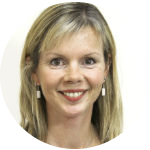-
Member Login
- Home
- About
- Institute Groups
- Membership
- Events
- News & Publications
- Institute Programs
- Resources
- Jobs Board
- Contact Us
- Site Info
Celebrating women and girls in science
Ahead of International Day of Women and Girls in Science on the 11th of February, we asked EIANZ Board Member, Carolyn Brumley MEIANZ CEnvP to reflect on her career as an environmental scientist and share some advice for young girls interested in science and women starting their careers in science.
Who or what inspired you to pursue a career in science?
I’ve always had an interest in natural history: biology, physiology, zoology. I didn’t know what I wanted to do for a career, so I followed these interests, which were also my strengths. I didn’t have a role model, or mentor, or follow a particular path. In fact, for a time, after my undergraduate degree, I quit science and worked in an insurance company as a business analyst. It was a great experience because it was in that job that I really learnt that I am a scientist, and that I should not continue with a business career! The working day is really long if you don’t much like what you’re doing.
What have you found most rewarding about a career in science?
Working with very clever scientists and engineers, and constantly learning with, and from, them is such a privilege. I also really like working in a team to find solutions to new problems. I find that gaining different perspectives on a problem and using professional judgement to reach an outcome is very rewarding.
What has been the biggest challenge you have faced in your career and how did you overcome it?
Probably my biggest challenge is being a classic introverted scientist who doesn’t love the limelight! I’m not sure I’ve overcome this, but I work on it by using trusted colleagues to challenge and benchmark my thinking, and by thorough preparation prior to presentations or workshops. Of course, the longer you practice your craft, the more confident you become, and I’ve certainly found that to be the case.
What advice would you give to young girls interested in science and to women starting their careers in science?
- Most importantly, follow your interests and nurture your curiosity. Science is an extraordinarily broad and constantly evolving field – it should be easy to find things that light up your mind.
- Gain different scientific experiences – do volunteer work, and/or vacation work, go to seminars, and read widely in your field.
- Find a mentor or role model(s), and talk to them about your aspirations, and draw from their experiences
- Join a professional organisation like EIANZ and take opportunities to network, present your work, and learn about the work of others.
 |
About CarolynCarolyn Brumley is an environmental scientist with broad experience in the environment industry as a researcher, consultant and regulator. Carolyn currently leads a national team of risk assessors with diverse backgrounds in geology, ecotoxicology, toxicology, microbiology, environmental science and engineering. In this role, she has led environmental assessments in the mining, oil and gas, infrastructure, land development, regulatory and waste sectors. Carolyn has been a Certified Environmental Practitioner since 2005 and was appointed to the EIANZ Board in 2015. She has a PhD in environmental toxicology from RMIT University and a Bachelor of Science with First Class Honour in Physiology from Monash University. |
We acknowledge and value the rights and interests of Indigenous Peoples in the protection and management of environmental values through their involvement in decisions and processes, and the application of traditional Indigenous knowledge.

